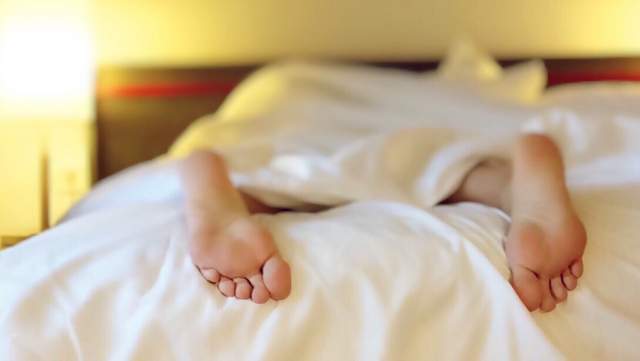
Gay people are more likely to have trouble getting to sleep, wake up more during the night, and are more likely to use medication to help them sleep in comparison to the heterosexual or bisexual peers.
That’s the finding of the latest research out of the USA, where up to 40% of the countries citizens report that experience insomnia regularly. The report was published in the journal Sleep Health.
Researchers from the National Center for Health Statistics in Atlanta analysed 46,909 men and 56,080 women who took part in the National Health Interview Survey between 2013 and 2015.
People who took part in the study were asked how many hour sleeps they get on average over a 24-hour period.
This data was then compared to the National Sleep Foundation’s recommendations of seven-to-nine hours for adults aged between 18 and 64 years old, and seven-to-eight hours for those 65 and over.
The findings are hardly surprising though, the LGBTI population has previously been reported as having higher levels of smoking and mental health concerns, both of which can lead to insomnia.
In the conclusion of their report the researchers suggest that additional research is needed to track down the factors that are causing gay and lesbian people to experience greater levels of insomnia.
If you’re having trouble getting to sleep the USA’s National Sleep Foundation has some tips that can improve your chances of getting a full eight to nine hours of rest.
Stick to the same bedtime and wake up time, even on the weekends.
This helps to regulate your body’s clock and could help you fall asleep and stay asleep for the night. This can be hard if you’re tired and want to sleep in on the weekends, but for many people it helps to set an alarm and wake up at the same time every day.
Avoid naps, especially in the afternoon.
A power nap may help you get through the day, but if you find that you can’t fall asleep at bedtime, eliminating even short catnaps may help.
Exercise, but not close to bedtime.
Exercising can help regulate your body and make you sleep better, but working out too close to bedtime can activate you and make it harder to settle into sleep.
Evaluate your room.
Make sure you have a clean, comfortable, quiet, and dark sleep space. Use a sound machine or a fan to block noise from inside or outside the house, and install darkening blinds for streetlights and morning light.
Avoid alcohol, cigarettes, and heavy meals in the evening.
Alcohol and cigarettes can disrupt sleep, and eating big or spicy meals can cause discomfort that can make it hard to sleep.
Wind down.
Your body needs time to shift into sleep mode, so spend the last hour before bed doing a calming activity such as reading. For some people, using an electronic device such as a laptop can make it hard to fall asleep, because the particular type of light emanating from the screens of these devices is activating to the brain. If you have trouble sleeping, avoid electronics before bed or if you wake up in the middle of the night.
OIP Staff
Support OUTinPerth
Thanks for reading OUTinPerth. We can only create LGBTIQA+ focused media with your help.
If you can help support our work, please consider assisting us through a one-off contribution to our GoFundMe campaign, or a regular contribution through our Patreon appeal.





